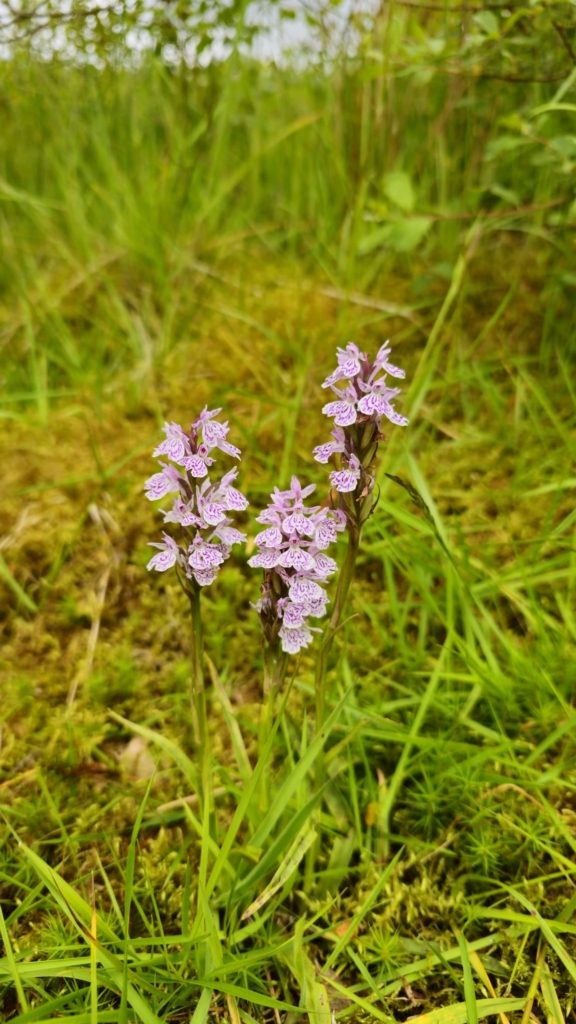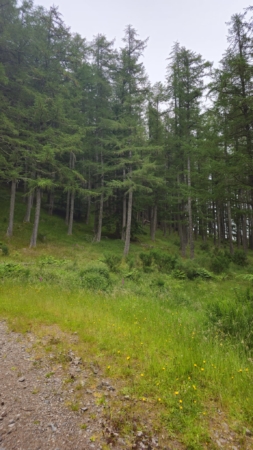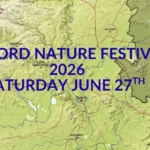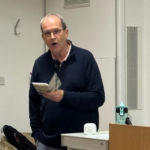From Urgency to Participation: It is important that nature recovery initiatives can ‘slow down’ to embrace community engagement and local knowledge

Allegra Bundy, MSc student in Biodiversity, Conservation and Management, reflects on the participatory process and key findings of her dissertation project, ‘From Urgency to Participation: Navigating Complexities in Nature Recovery in the Scottish Highlands’. The project, which was awarded a distinction, was supervised by Dr Caitlin Hafferty and supported by the Leverhulme Centre for Nature Recovery.
 Scotland is at the forefront of ambitious nature recovery efforts. Key policies, such as the Scottish Biodiversity Strategy and Nature Positive Scotland, alongside initiatives such as Scotland: The Big Picture and Rewilding Nation reflect a strong commitment to large-scale restoration. Additionally, the growing role of harnessing private finance in natural capital approaches, whose importance is reflected in the Scottish Natural Capital Market Framework, is shaping how some of these projects are funded.
Scotland is at the forefront of ambitious nature recovery efforts. Key policies, such as the Scottish Biodiversity Strategy and Nature Positive Scotland, alongside initiatives such as Scotland: The Big Picture and Rewilding Nation reflect a strong commitment to large-scale restoration. Additionally, the growing role of harnessing private finance in natural capital approaches, whose importance is reflected in the Scottish Natural Capital Market Framework, is shaping how some of these projects are funded.
This research explores how participation is framed and experienced and how particular strategies for governing nature recovery influence democratic participation and local community engagement. Based on interviews with diverse nature recovery practitioners and community groups in the Central Scottish Highlands, the dissertation shares a key message to key actors and experts in promoting nature’s recovery: against a backdrop of urgency to respond to climate and biodiversity crises, it is crucial that nature recovery efforts are also able to slow down to embrace genuine participation.
The dissertation prioritized a collaborative and participatory approach, working alongside Dr. Caitlin Hafferty, another MSc student, Colombe Stevens, with support from a broader Leverhulme Centre for Nature Recovery project on participatory governance.
Overall, the dissertation project reflected on the tensions that emerge when the interlinked biodiversity, climate and human well-being crisis is framed primarily through urgent timescales and a purely scientific and technical lens, overlooking key social dimensions such as community engagement, participatory governance and equity. The research identified the following tensions:
1. Tensions between the urgency to respond to the climate and biodiversity crisis and the slower, more deliberate processes required for meaningful participation as part of a “just transition” through nature recovery. This can restrict the time required for genuine participation and the inclusion of local perspectives, generating a condition where truly democratic processes are limited in favour of consensus and scientifically-driven decisions that are perceived to contribute to faster acting change.
2. The drive for harnessing private finance for nature recovery through market-led mechanisms increases the focus on quantifiable measurements of landscapes (such as biodiversity and carbon credits), which risks promoting narrow economic assessments of landscapes at the expense of considering broader, less tangible social benefits and power dynamics.
3. Varied interpretations of what participation means in theory versus in actual practice in nature recovery projects. While nature recovery efforts often claim to provide benefits to local communities, underlying factors – including instances of tick-box community engagement and patterns of concentrated landownership with narrow or single visions of the landscape – risked limiting truly meaningful participatory governance.
Top-down and science-driven approaches to nature recovery are important and not inherently negative. However, they can become problematic when they overshadow alternative and community-led strategies. When one approach to nature recovery is prioritised, this risks excluding local voices, reinforcing power imbalances, and limiting long-term engagement. However, these approaches do not have to be at odds. Stronger partnerships between technical experts and local communities can create more inclusive, effective, and lasting nature recovery efforts. Collaborative models, such as partnership working, community benefit-sharing, and collaborative natural resource management can help bridge the gap between large-scale initiatives and grassroots efforts.
For nature recovery to be just and equitable, landowners, project managers, scientists, and other key decision-makers must pause to reflect on whether fast-faced, urgency-driven solutions are always needed, and what impact they have on the consideration of alternative approaches. While urgency is often emphasised in the face of climate and biodiversity crises, the findings of this study suggest that slowing down, taking the time to foster relationships, and embracing genuinely democratic processes is crucial for effective, long-term impact.
For questions or to request a copy of the dissertation, please contact Allegra Bundy (allegra.bundy@gmail.com) and Caitlin Hafferty (caitlin.hafferty@ouce.ox.ac.uk).




